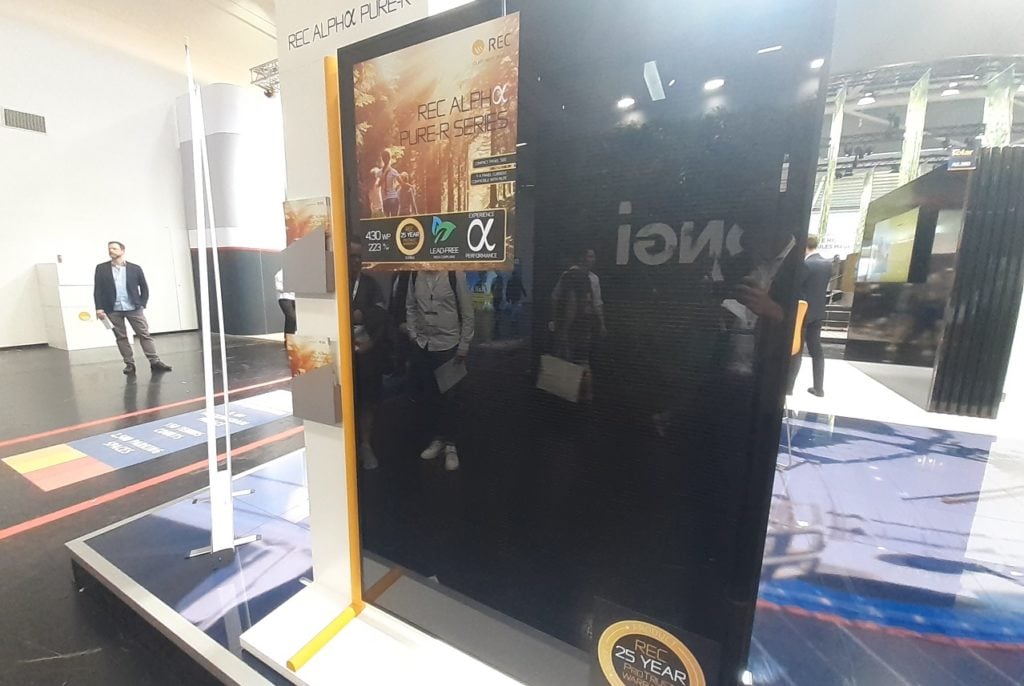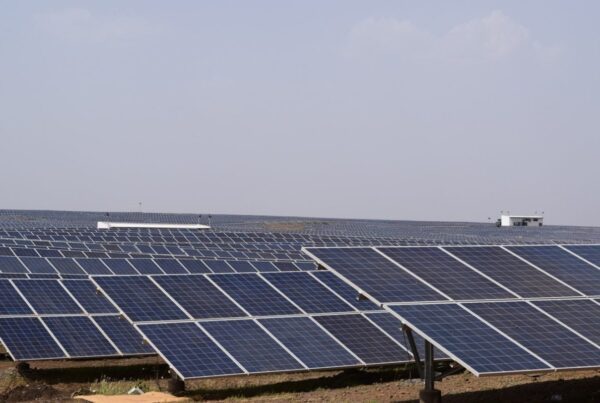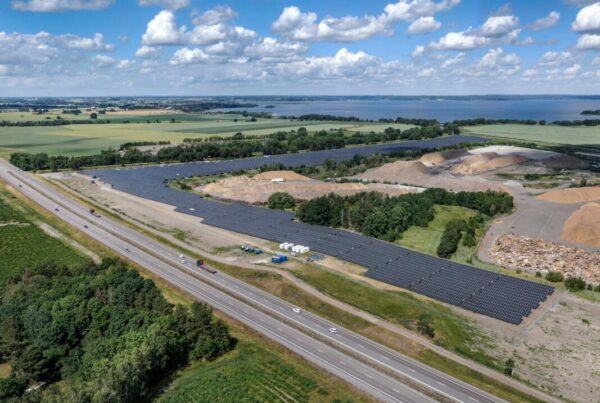
REC Group is on track to reach 1.2GW of heterojunction (HJT) module production capacity in Singapore as it also progresses with the construction of a solar manufacturing plant in India.
The Norway-headquartered module manufacturer already has 600MW of production capacity for its Alpha Pure range at its Singapore facility, which is set to add another 600MW for the company’s latest line, the Alpha Pure-R.
Launched at Intersolar Europe last month for residential applications, the module features 80 half-cut HJT cells and will be available in three power outputs: 410Wp, 420Wp and 430Wp. Production is set to begin in August.
Cemil Seber, vice president of global marketing and product management at REC, said the company has tried to make the Alpha Pure-R as compact as possible while also boosting its sustainability credentials by not using lead.
All REC’s future research efforts will now be focused on HJT technology, according to Seber. “We know that it’s the technology which has the most potential in terms of really embracing the power density, the module efficiency going higher and higher,” he told PV Tech.
REC’s Singapore expansion comes after the company was acquired by Indian conglomerate Reliance Industries for US$771 million last year. When the deal was announced, REC said its backing from Reliance will enable it to grow to more than 5GW of production capacity in Singapore, Europe and the US.
“They are 100% supporting us, so that is really, really important,” Seber said, with REC having started work on a cell and module manufacturing site in India that will have multiple gigawatts of production capacity when complete. Production is due to start in just over a year.
Reliance Industry’s acquisition of REC coincided with the conglomerate investing in solar wafer producer NexWafe as part of a Series C financing round.
Germany-based NexWafe is developing monocrystalline silicon wafers grown directly from a feedstock gas through its EpiWafer process. A recently published white paper from the company said that given REC’s moves toward HJT manufacturing, and the suitability of EpiWafers for HJT manufacturing, Reliance’s stake in both companies “offers significant possible synergies in the future”.
Seber said that while REC’s focus has primarily been on the residential solar sector, as the company’s production capacity expands it has plans to produce modules that are more suited for the commercial and industrial as well as utility-scale segments.





